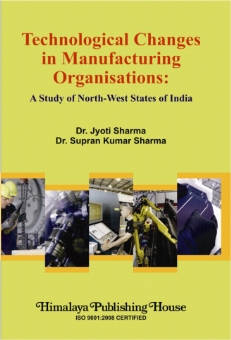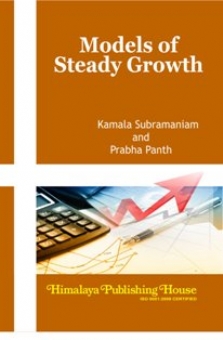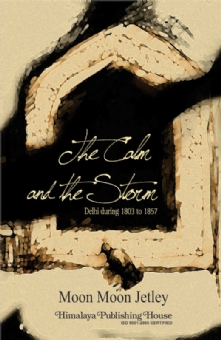The technological changes in an organisation is a tricky issue, as when it comes to successful implementation of technological changes, a number of complex internal and external factors play a crucial role. Accordingly, the present attempt has been aimed to get an insight relating to different aspects associated with technological changes at two levels, i.e., viewpoint of organisations and employees. The manuscript entitled “Technological Changes in Manufacturing Organisations: A Study of North-West States of India” conducted with the financial grant of ‘Indian Council of Social Science and Research’, New Delhi is a modest attempt to get an understanding in this direction. The composition of the book has been carried out with the assumption that technological changes do not revolve only around the production machinery but also go around the expertise of organisation in context of managing that change. This management of technological change stretches from management of people, their reactions, apprehensions relating to security, hardships, nature of work, etc. to the management of organisations’ systems, process, operations, structure, etc.
Synthesising prior research on different models relating to technology acceptance, the contribution has developed a theoretical framework in mandatory settings that represents the cumulative body of knowledge generated over the years from the research relating to different technology acceptance models. Multidimensional analysis of the research problem using constructs that are sufficiently reliable and validated in Indian context have been estimated. The attempt has advanced both knowledge and understanding of the relevant literature through an empirical technological acceptance model which assesses the individual’s technology acceptance behaviour in case of Indian manufacturing sector. The book would enhance its utility for practitioners of not only manufacturing sector but also for other different sectors which are on the way of technology adoption and adaptation.
The technological change scenario in the world in general and Indian economy in particular in the present era has been described in the first part of the book. While, the second part of the book throws light on the employees’ perspective relating to various aspects of technological changes adoption and adaptation. Whereas, the third part of the book gives the description about the employers’ perspective relating to technological changes in the organisations. Lucid and coherent applications of relevant multivariate techniques of data analysis including, Discriminant Analysis, Cluster Analysis, Confirmatory Analysis and Structural Equation Modelling would facilitate those who do not have mathematical aptitude or knowledge required to understand the logic and steps of conducting data analysis.
Contents –
Chapter I Introduction
Chapter II Literature Review
Chapter III Database and Research Methodology
Chapter IV Drivers and Dimensions of Technological Changes: Employees’ Perspective
Chapter V An Integrated Model of User Satisfaction and Technology Acceptance in Mandatory Environment
Chapter VI Correlates of Supportive Behaviour of Manufacturing Organisations
Chapter VII Study of Inhibitors, Benefits and Determinants of Technology Orientation of Organisations
Chapter VIII Summary, Conclusions and Implications
Annexures







